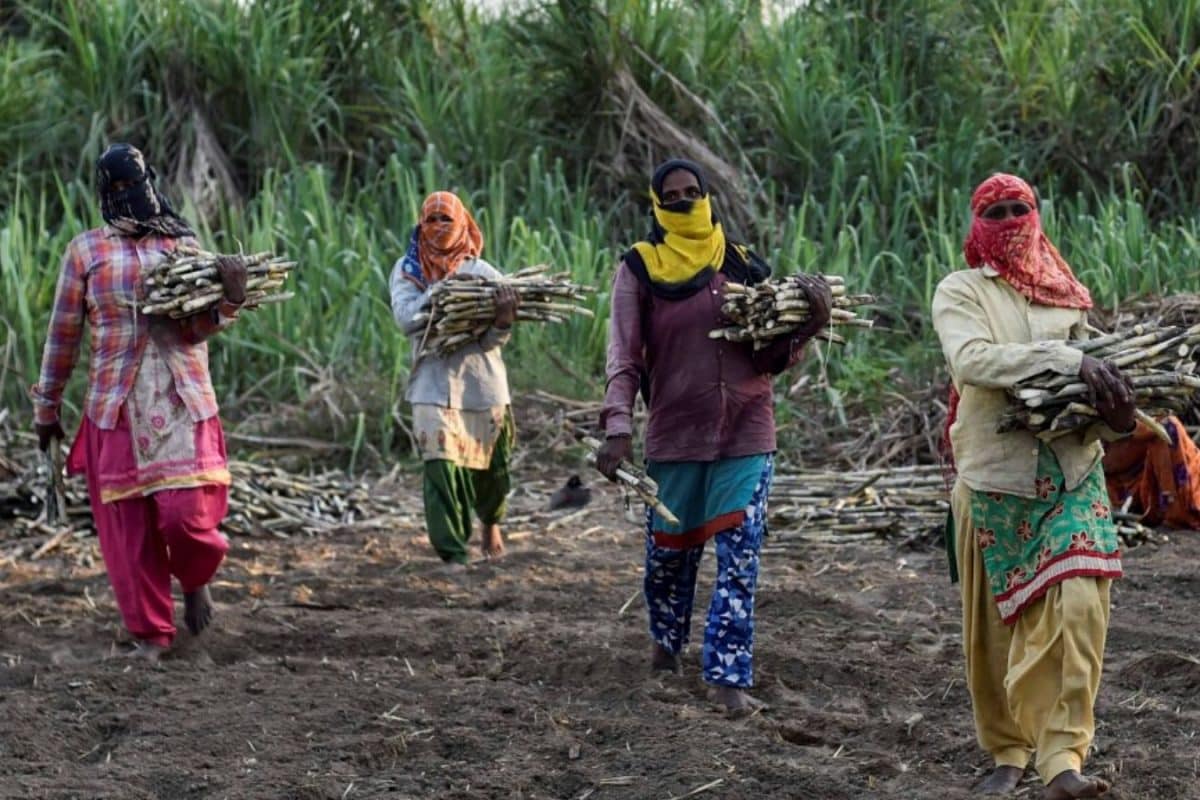

A disturbing trend has emerged in Maharashtra's Beed district, with a high number of women sugarcane laborers undergoing hysterectomies. Recent reports indicate that 843 women in the 30-35 age group had their wombs removed before migrating for sugarcane work. This alarming statistic highlights the dire circumstances and exploitation faced by these women, who often endure harsh working conditions and lack access to proper healthcare.
Sugarcane cutting is a physically demanding occupation, with workers toiling for long hours outdoors. Women laborers face additional challenges due to menstruation and pregnancies, which can make work more difficult. In many cases, contractors encourage hysterectomies, offering loans to cover the costs and trapping women in a cycle of debt. This exploitation is fueled by the desire to maximize labor output, as contractors and farm owners seek to avoid disruptions caused by menstrual cycles or pregnancies.
The issue of sugarcane workers undergoing hysterectomies in Beed first gained widespread attention several years ago. A 2019 report revealed that a significant percentage of women sugarcane cutters in the district had undergone the procedure, with some villages reporting rates as high as 50%. These surgeries are often recommended by private doctors, who sometimes create fear among women by warning them of potential tumors or cancers. In many instances, these women are not provided with thorough examinations or counseling before undergoing the procedure.
Several factors contribute to this problem, including poverty, illiteracy, and lack of access to sanitation and water. Many women rely on rags for menstrual hygiene and work long hours without adequate facilities, leading to infections and other health issues. The migrant nature of sugarcane work further exacerbates the problem, as women often lack access to healthcare and social support networks.
The Maharashtra government has taken some steps to address the issue, including forming committees to investigate the matter and recommending measures to improve the health and well-being of sugarcane workers. However, activists and experts argue that more needs to be done to protect these vulnerable women and prevent exploitation. Some suggest that administrators of the COP28 'loss and damage fund' should consider how they can help.
The situation is further complicated by climate change, which has led to increased droughts and crop failures in the region. This has forced many women to migrate for work in the sugarcane industry, where they face exploitative conditions and pressure to undergo hysterectomies. A recent study found that women from households that migrated for work were more likely to have undergone a hysterectomy compared to those who stayed in Beed.
To tackle this issue effectively, a multi-faceted approach is needed. This includes providing better access to healthcare, sanitation, and menstrual hygiene products for women sugarcane workers. It also requires stricter regulations and enforcement to prevent contractors and doctors from exploiting these women. Additionally, efforts to address climate change and promote sustainable agriculture can help reduce the need for migration and alleviate the economic pressures that drive women to undergo unnecessary hysterectomies.